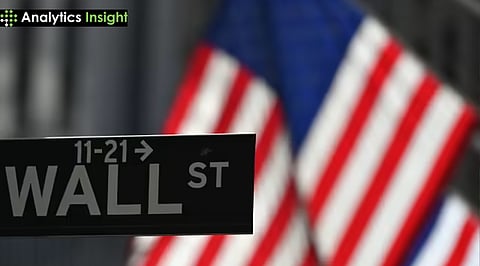

On Monday, the NASDAQ Composite reached a new all-time high, driven by substantial gains in major tech stocks. The index climbed 0.8%, marking a new peak. Meanwhile, the broader market showed steady progress, with the S&P 500 rising by 0.4% and the Dow Jones Industrial Average gaining 0.2%.
Broadcom, whose stock jumped 4%, was a major contributor to the NASDAQ’s surge. NVIDIA also boosted the tech-heavy index with nearly a 2% gain, partially rebounding from recent losses. Additionally, other industry giants, such as Meta, Amazon, and Microsoft, experienced gains, supporting a broad upward trend in the sector.
An investment strategist, Ross Mayfield, stressed the strength across the tech stocks. He said, “It's not just a few big names driving this rally,” noting that many tech companies are doing well. The rise in AI spending is viewed as a major driver behind tech stocks soaring to new highs.
This week, investors are concentrating on two major inflation reports: the August producer price index (PPI) and the September consumer price index (CPI). These reports, scheduled for release on Wednesday and Thursday, will provide crucial insights into inflation trends and the broader economy's condition.
After August's weaker-than-expected hiring data, many investors think the Federal Reserve may lower interest rates at their September meeting. The expectation of rate cuts has contributed to the recent market surge, as traders adjust their outlooks in anticipation of expected Fed moves.
While the market is generally optimistic, some analysts caution that short-term volatility could arise. As the September meeting of the Federal Reserve approaches, uncertainty around the upcoming inflation reports could cause some price fluctuations. According to Michael Wilson of Morgan Stanley, the market may experience "choppy" movements, notably if the data diverges from forecasts or if unexpected events occur in other sectors.
Despite potential short-term disruptions, Wilson maintains a positive long-term outlook. A Fed rate cut could continue to fuel market growth, especially if economic conditions are stable. Investors will keep a close eye on any signs of economic weakness that could influence the Fed's decision.
While tech stocks thrived, shares in the telecommunications industry declined. T-Mobile, AT&T, and Verizon's stock prices dropped after news that EchoStar would sell wireless spectrum licenses to SpaceX.
Despite these setbacks, analysts at Goldman Sachs remain optimistic about the broader market. The firm projects that US stocks will continue their upward trajectory, with smaller companies expected to catch up in the near future. Goldman strategists have set a year-end target for the S&P 500 at 6,600 points.
Also Read: US Stock Market Today: S&P 500 falls 0.7%, NASDAQ dips 0.6%, Dow Jones slips 0.6%
